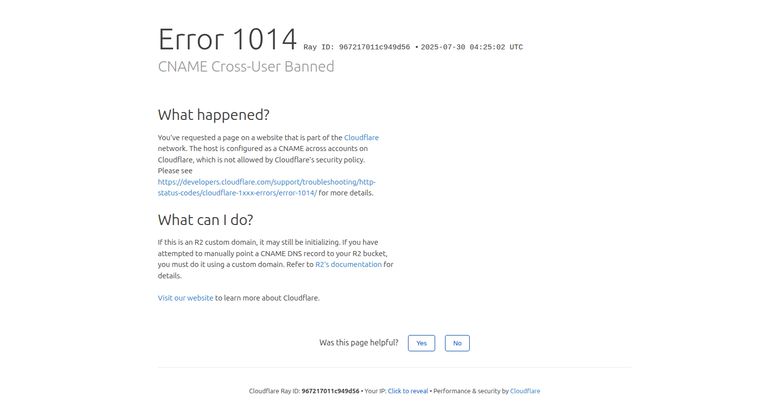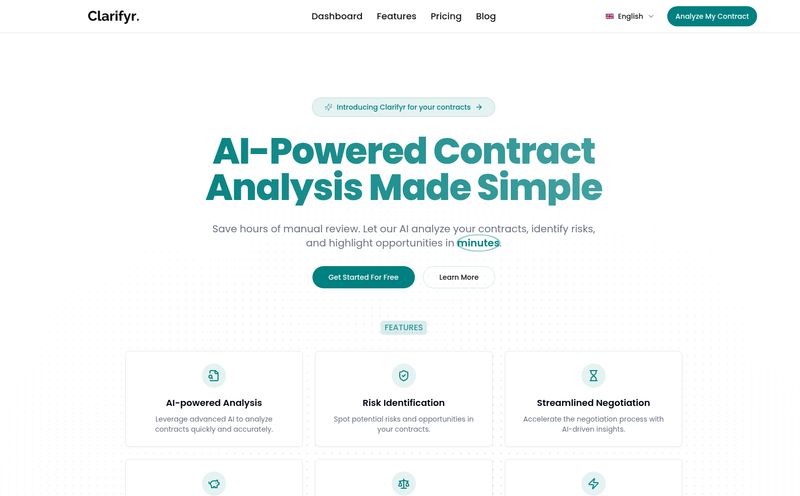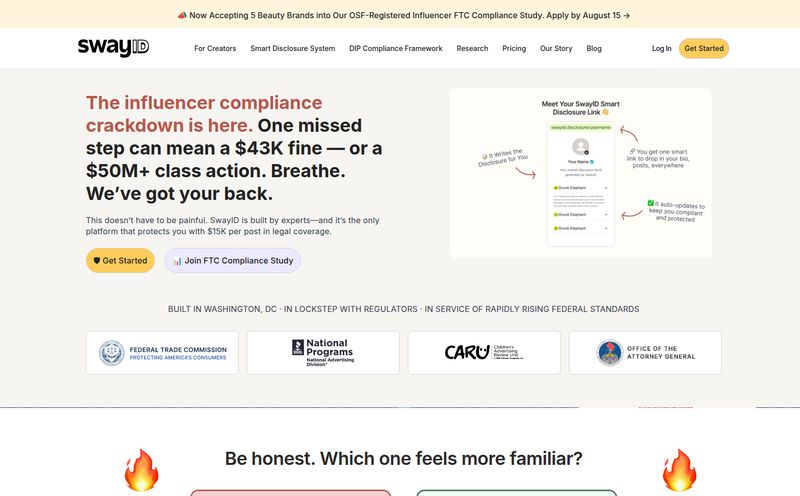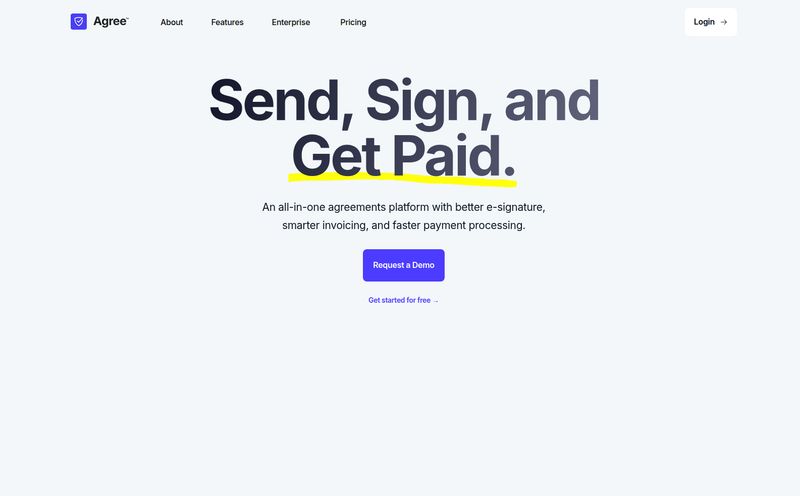Contracts. Ugh. The word alone is enough to send a shiver down the spine of any freelancer or small business owner. They are the bedrock of business, the necessary evil that protects you, but man, can they be a nightmare. You’re either staring at a bill from a lawyer that makes your eyes water, or you're Frankensteining a contract from a dodgy template you found on page 12 of Google, hoping it doesn't have a loophole big enough to drive a truck through.
For years, we've been promised a middle ground. And in the great AI gold rush of the last few years, a ton of tools have popped up claiming to be the answer. So when I heard about Tynal, an AI-powered add-in for Microsoft Word that drafts, modifies, and reviews legal agreements, my interest was piqued. An AI that lives right inside Word, where the work actually happens? Sounds pretty good. So, I went to check it out, to get a feel for the platform, look at the pricing, and... well, that's where things got interesting.
Instead of a slick landing page, I was greeted with this:

Visit Tynal
An Error 1014. A dead end. But this isn't just any old error. It tells a story. And it makes this review a little different. We're not just looking at a tool; we're doing a bit of digital archeology on a potentially great idea that seems to have hit a snag.
So, What Exactly Is Tynal Supposed to Be?
Putting aside the error page for a moment, let's talk about the concept, because the concept is solid. Tynal isn't a standalone website or a separate app you have to juggle. It's designed to be a Microsoft Word add-in. Think of it like having a tiny, incredibly fast paralegal living in your ribbon menu, ready to jump in whenever you're working on a contract.
The whole idea is to bridge that scary gap between expensive legal counsel and risky DIY documents. For the thousands of us running small operations, hiring a law firm for every non-disclosure agreement, service contract, or partnership agreement just isn't feasible. Tynal aims to be that first line of defense, the tool that gets you 90% of the way there, safely and efficiently.
The Promised Land: A Look at Tynal's Claimed Features
Based on the information I could dig up, Tynal was built around four core pillars designed to take the pain out of contracts.
Instant Contract Drafting
This is the headline act. The promise is that you can essentially give Tynal a brief—say, "Draft a standard non-disclosure agreement for a software development project based in California"—and it generates the document for you. This could be a massive time-saver, cutting out the tedious search for reliable templates.
Effortless Modifications
Anyone who's tried to edit a legal template knows the fear. You delete one clause, and the whole document's formatting explodes. Or you change a term, but you miss one of the ten other places it's mentioned. Tynal claims to handle this intelligently. Need to change the governing state or add a specific liability clause? The AI should be able to refactor the document without breaking it, ensuring consistency. That, my friends, is a big deal.
In-Depth Contract Reviewing
This feature is like having a second pair of expert eyes. The idea is that you can run an existing contract through Tynal, and its AI will scan for potential issues. It might flag ambiguous language, identify missing standard clauses, or point out terms that are heavily skewed against you. It’s an automated sanity check, and while it's no substitute for a real lawyer on a multi-million dollar deal, it's a fantastic safety net for everyday agreements.
Local Law Compliance
This is huge. Using a contract written for Texas law in New York is a recipe for disaster. Legal requirements can vary wildly from place to place. Tynal's promise to ensure compliance with local laws is perhaps its most valuable feature. It suggests the AI is trained on different legal frameworks, which could save you from a world of hurt down the line.
The Good, The Bad, and The AI
Even without a live site, we can analyze the proposition. Every tool has its strengths and weaknesses, and AI is no different.
Why I'm Still Intrigued (The Potential Upside)
The core benefits here are obvious but powerful. You're saving a ton of time and, potentially, a lot of money. The convenience of having this power right inside Microsoft Word can't be overstated. Hopping between different apps and websites fragments your workflow and kills productivity. Keeping it all in-house, so to speak, is the dream. It reduces the chance of manual errors from copying and pasting, and it just makes the whole process feel less... disjointed. The tool and it's features, on paper, are a win.
Potential Gotchas and Red Flags
Okay, let's be real. First, the biggest red flag is that the website is down. We'll get to that. But beyond that, any AI tool like this comes with caveats. The output is only as good as your input. If you give it a vague, poorly written brief, you'll probably get a generic, unhelpful contract back. Garbage in, garbage out, as the old saying goes. You still need to be the human in the loop, the one who reviews the final output and makes sure it truly reflects your agreement. Never, ever, just trust an AI blindly with legal docs. That's not smart.
And then there's the pricing mystery, which we'll touch on later. But the fact it's not readily available is a con in my book.
Let's Talk About That Error: What Happened to Tynal's Website?
Alright, back to the elephant in the room. That "Error 1014: CNAME Cross-User Banned" isn't your typical "website down" message. I've been in this game a while, and this error is specific. In layman's terms, it means the domain name (the Tynal web address) is trying to point to a resource on Cloudflare's network (like a server or storage bucket) that belongs to a different user account. It's a security policy to prevent hijacking.
What could this mean? A few possibilities:
- A Simple Misfonciguration: Someone on the tech team made a mistake setting up their DNS records. It happens.
- A Shift in Infrastructure: They might be moving servers or services and messed up the transition.
- A Sign of Trouble: In a more pessimistic view, it could signal that the service they were pointing to (perhaps a paid hosting plan) has been discontinued or the account was closed. For a startup, that can sometimes be a sign they've run out of runway.
Whatever the reason, for a company offering a tool to manage legally-binding contracts, having your own front door broken is not a great look. It raises questions about reliability and technical oversight.
The Million-Dollar Question: What About Tynal's Pricing?
With the website out of action, any official pricing page is gone with it. This was a sticking point even in the information I could find from before the outage. The lack of transparent pricing is a personal pet peeve of mine. I get it, some enterprise tools want you to "Contact Sales," but for a tool seemingly aimed at freelancers and SMEs, I want to see a clear pricing table. Is it a monthly subscription like Netflix? A pay-per-contract model? A freemium tier?
Without this info, it's impossible to judge the value proposition. Is it $10 a month? $100 a month? The price fundamentally changes who this tool is for.
Is Tynal Worth It… If It Comes Back?
Assuming the website issue is a temporary blip and Tynal relaunches, who is this for? I think the sweet spot is massive: freelancers, creators, startups, and small business owners who need to create and manage contracts regularly but aren't at a scale to have a lawyer on retainer. It's for the marketing agency owner who needs to draft 10 service agreements a month or the freelance developer who needs a solid NDA for every new client conversation.
It's not for negotiating a merger and acquisition. It's for democratizing access to safe, standard legal documents. And that's a worthy goal.
Frequently Asked Questions
- What is Tynal?
- Tynal is an AI-powered add-in for Microsoft Word designed to help users draft, modify, and review legal contracts directly within their document. It aims to be an alternative to expensive legal firms and unreliable online templates.
- How does Tynal work inside Microsoft Word?
- It functions as an add-in, likely opening a task pane within Word. From there, you would provide prompts to draft a new contract, or use its tools to analyze and modify the document you currently have open.
- Can I fully trust AI for legal contracts?
- No. While AI tools like Tynal are incredibly powerful for creating a strong first draft and spotting common errors, they are not a substitute for legal advice from a qualified human lawyer. You should always review the output carefully, especially for complex or high-stakes agreements.
- Is Tynal free to use?
- The pricing information for Tynal is not publicly available. It's unclear if there was a free tier, a trial, or what the subscription costs were. This lack of transparency is a significant downside.
- What does the 'Error 1014' on the Tynal website mean?
- It's a specific DNS configuration error. It indicates the website's domain is pointing to a cloud resource it's not authorized to use. This could be a temporary technical glitch or a sign of bigger issues with the service's operational status.
- Are there good alternatives to Tynal?
- Yes, the legal tech space is growing. There are other AI contract tools available, though many are standalone platforms rather than Word add-ins. The main alternatives remain traditional law firms for bespoke advice, and legal template websites (like LegalZoom or Rocket Lawyer) for more standardized documents.
Conclusion: A Promising Idea, Currently On Hold
Tynal represents a fantastic idea. The pain point it aims to solve is real, and its proposed solution—a smart assistant inside the world's most popular word processor—is elegant. The features sound genuinely useful and could be a lifesaver for so many of us in the trenches of running a small business.
But an idea is only as good as its execution. Right now, Tynal is a bit of a mystery. A digital ghost ship. I'm genuinely hoping the website error is just a temporary, embarrassing hiccup and that it comes back online with a vengeance, complete with a clear pricing page. If it does, it could be a powerful tool in our arsenal. For now, I'll be keeping an eye on it. It’s a curious case, and one I hope has a happy ending.
Reference and Sources
For further reading and to verify some of the technical points discussed:
- Cloudflare Documentation: Error 1014
- Forbes Advisor: The Use Of AI In Law
- Microsoft AppSource for Word Add-ins
- Note: The official Tynal website was inaccessible due to the aforementioned error at the time of writing.



